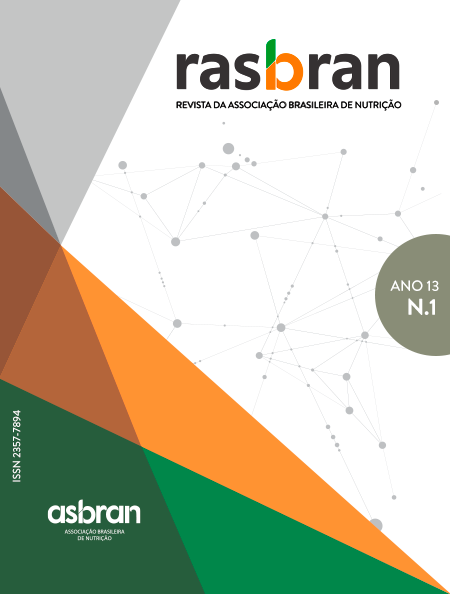Efeitos da ingestão dos ácido docosa-hexaenoico e ácido eicosapentaenoico sobre o sistema nervoso central de indivíduos saudáveis ou com patologias neuropsiquiátricas em diferentes faixas etárias: revisão sistemática
DOI:
https://doi.org/10.47320/rasbran.2022.2652Abstract
Objective: The omega-3 essential fatty acids eicosapentaenoic acid (EPA) and docosahexaenoic acid (DHA) are beneficial to the central nervous system (CNS), with studies demonstrating their role in myelination and synaptogenesis. Furthermore, its deficiency was correlated with the development of neurological and psychiatric pathologies. Therefore, the present work aims to present an updated literature review on the effects of EPA/DHA intake on the CNS of humans in different age groups and neurological/psychiatric health status. Methodology: This study was conducted observing the PRISMA method; the search for studies was performed in the scientific database Medline. The inclusion criteria were articles published between 2010-2021, published in English, randomized clinical trials with humans, and observational studies. Results: 11 articles were selected and then categorized by topic. It was observed that in children's neuropsychomotor development the EPA/DHA supplementation benefited language acquisition and provided slightly better scores in neurological tests. In healthy adults, there was found evidence of an increase in the effectiveness of neural processing. In children with ADHD, the consumption of EPA/DHA was linked with better scores on tests of attention. In individuals with schizophrenia, there was less loss of cortical thickness. In older adults with memory deficits or Alzheimer's disease, results such as an increase in brain oxygenation, less inflammation, and slower brain mass loss were found. Conclusion: From the analysis of the studies, it appears that the ingestion of EPA/DHA benefits the CNS through effects on neurodevelopment, cognitive function, disease prevention, and as an adjuvant therapeutic strategy.
Downloads
Downloads
Published
How to Cite
Issue
Section
License
Copyright (c) 2023 Revista da Associação Brasileira de Nutrição - RASBRAN

This work is licensed under a Creative Commons Attribution 4.0 International License.
A Revista se reserva no direito de efetuar, se necessário, alterações de ordem normativa, ortográfica e gramatical, com vistas a manter o padrão culto da língua, respeitando, porém, o estilo dos autores.
Ao encaminhar os originais, os autores cedem os direitos de primeira publicação para a Revista da Associação Brasileira de Nutrição e aceitam que seu trabalho seja publicado de acordo com nossa Declaração de Direito Autoral.
Os documentos publicados serão atribuídos a licença 
Este trabalho está licenciado com uma Licença Creative Commons - Atribuição 4.0 Internacional.


